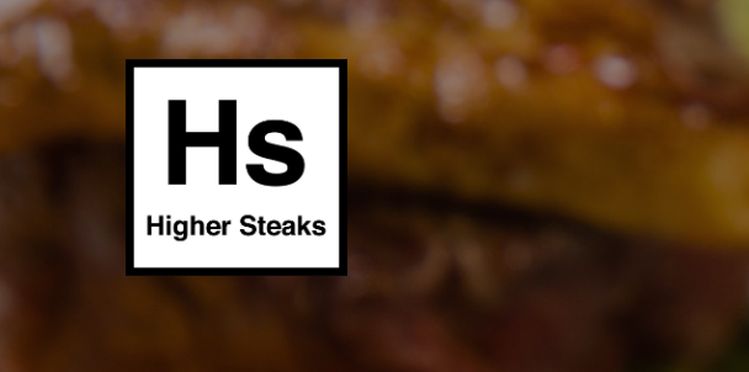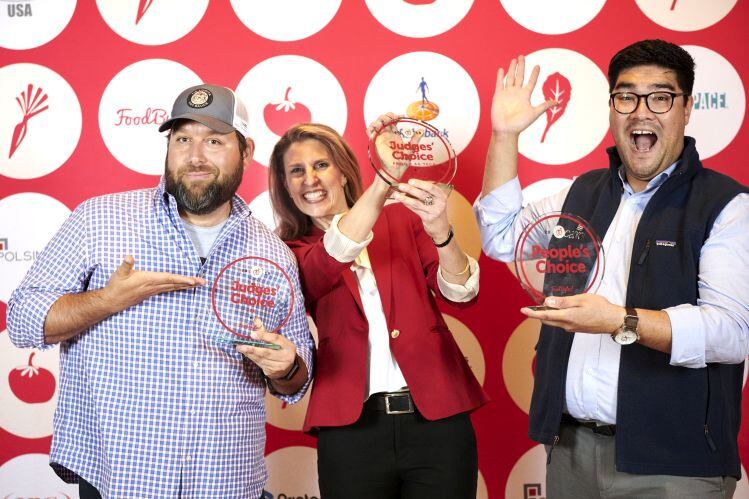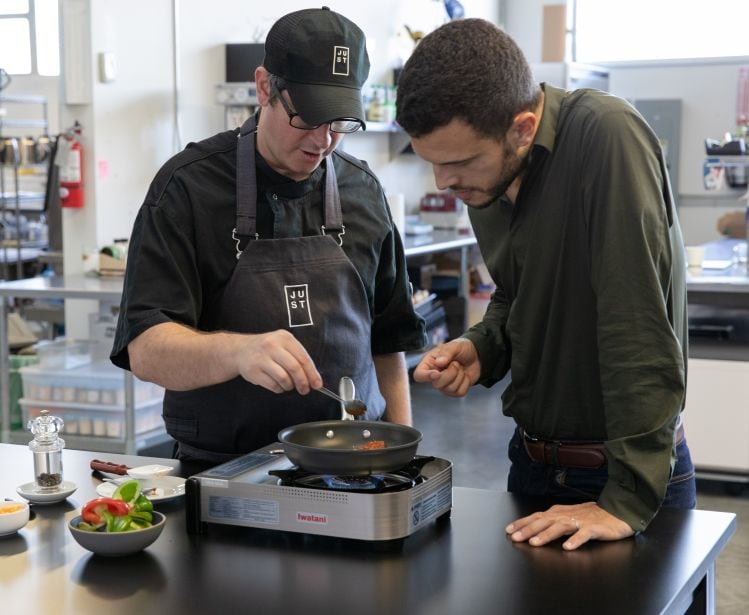One of 15 startups pitching at Rabobank’s FoodBytes! competition in Chicago on September 19, Higher Steaks is using induced pluripotent stem cells (iPS), which behave like embryonic stem cells in that they can replicate/proliferate extensively (without having to keep going back to the original source) and differentiate into multiple cells types such as muscle and fat.
CEO Benjamina Bollag would not go into details, but said the process of reprogramming adult stem cells to behave like these embryonic ‘master cells’ does not involve genetic engineering, a key factor for any company trying to enter the European market.
“This is a discovery [pioneered by Shinya Yamanaka’s lab in Kyoto, Japan] that got the Nobel prize in 2012. Right now we’re sourcing them from academic groups and commercial sources, but will eventually we’ll do our own lines and bring them to market.”
Why begin with pork?
The decision to focus on pork was made for multiple reasons, said Bollag, a chemical engineer who co-founded Higher Steaks in 2017 with stem cell scientist Dr. Stephanie Wallis and Prof. David Hay, chair of tissue engineering at the Center for Regenerative Medicine at the University of Edinburgh.
“Demand is really shooting up, but supply is under significant threat because of African swine fever. On top of that, a lot of antibiotics used [in meat production] are used in pork and poultry, and one of the main challenges we are trying to address is antibiotic resistance.
“Pork is also used in a ton of processed products that we can start with. It’s also genetically similar to humans, so it’s easy to adapt the work that has been done on the medical side [to large scale cell-cultured meat production],” added Bollag, who anticipates bringing products to market in 3-5 years, beginning in high-end restaurants in the EU, where cell-cultured meat would be considered a ‘novel food’ and therefore subject to pre-approval under the Novel Food Regulation.
Edible scaffolding and growth medium
She would not go into details on materials Higher Steaks is exploring as scaffolding (edible structures upon which firms can seed cells in order to grow more 3D structures), but said this is an area the company is “innovating in.”
As for alternatives to fetal bovine serum that can serve as cost-effective growth media (ie. food for the cells), she said: “We managed to grow the cells without FBS but we’re still working on getting [this] cost effective.”
Investing in cell-cultured meat
Asked about what Memphis Meats founder Dr Uma Valeti recently described as the “massive gap in funding” for cell-cultured meat (which has attracted less than $100m in investment capital since 2015 compared to hundreds of millions of dollars in plant-based meat over the same period), Bollag said:
“It’s challenging but also it’s an area that can have a lot of impact… but plant-based is easier for investors to understand.”
‘We could exit actually before even going to market’
Asked by FoodBytes! Chicago judge Michael Lavin from Germin8 Ventures how early investors in Higher Steaks could get liquidity, she said:
“There are several routes, but I think one thing to keep in mind is that we could exit actually before even going to market, so once we’ve proven the technology and been able to scale up to pilot plant, we could either sell the company or do this as a joint venture to scale this further and be commercialized.”
(This sounded like a plausible strategy, he said, although any exit prior to commercialization would be “highly dependent on IP.”)
‘Cultivated’ meat?
As to what to call meat cultured from animal cells, Bollag says she’s happy with the term ‘cell-based meat,’ but also likes the new term ‘cultivated meat’ (suggested by Mattson and the Good Food Institute as a more consumer-friendly alternative), adding: “It’s really about what works for consumers but doesn’t alienate us from the regulators and from the meat producers we’ll very likely have to partner with.”
- WATCH: FoodBytes! Chicago: How should startups begin an elevator pitch?
- WATCH: Hybrid products could capture a significant chunk of the protein market, predicts The Better Meat Co
- LocalCoho, Tia Lupita Foods, and Capro-X take top prizes at FoodBytes! Chicago 2019

“We’re eating more meat than ever before despite people being more aware of the negative consequences that this has… and plant based meats are getting better by the day. Clearly, people still want real meat and Higher Steaks makes meat that looks, smells and taste just like meat should, right down to the molecular level.”
Benjamina Bollag, co-founder and CEO, Higher Steaks



